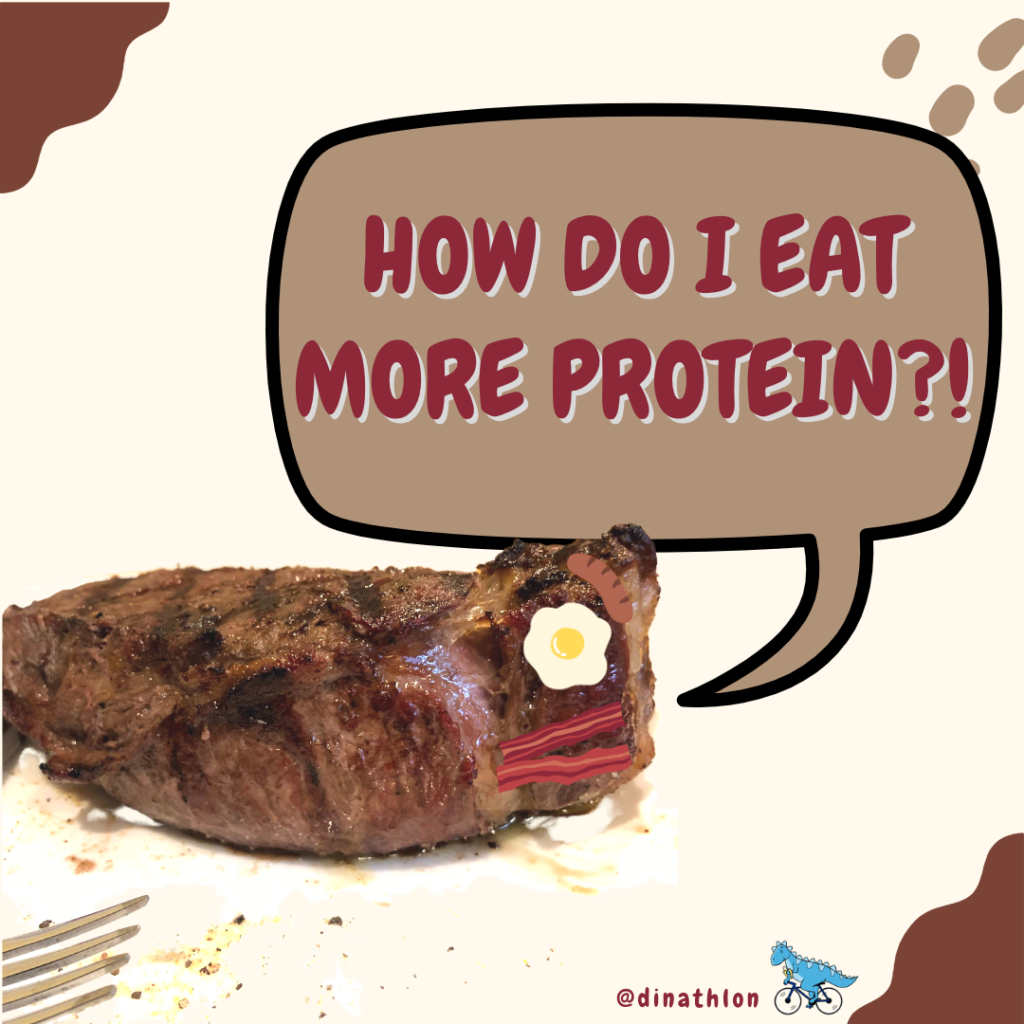
“How do I eat more protein?” is a super common question that I get from both my athletes and my nutrition clients.
You’ve likely heard that protein is important. Maybe you suspect you aren’t eating enough. Maybe you’re not sure WHY it’s so important. Or you’ve heard, like, 8 different numbers when you try to look up how much you’re supposed to eat.
Let’s talk about it.
How much protein do you actually need?
Aim for a minimum of 0.7 grams of protein per 1 pound of goal body weight.
That’s a MINIMUM number to hit. You can eat more if you want, but at least hit that number in order to get the benefits.
Why this amount?
- It helps build and retain muscle
- It’s key for post-exercise muscle recovery
- It keeps you feeling full, therefore preventing getting too hungry, snacking, and overeating
- It has a higher thermic effect, which means it takes more energy to digest than carbs and fat
If you want to eat more, aiming for between 0.7 grams and 1 gram per 1 pound of goal body weight might help if you’re:
- Trying to lose fat: protein is the most satiating out of all three macronutrients (the others being carbs and fat), so it will help you feel fuller. This can be helpful if you’re in a calorie deficit, because otherwise you might feel hungrier throughout the day and turn to snacking or overeating.
- Trying to build a lot of muscle: if you have big goals for muscle gain, a little more protein can help. One, protein is the macronutrient that builds muscle, and two, more calories overall will help you be in a calorie surplus, which you’ll need to put on a lot of muscle.
- Over the age of 65: you will inevitably lose muscle mass as you age. Upping protein intake can help combat this, by both retaining the muscle you already have and building more muscle if that’s your goal.
- An endurance athlete: you’re breaking down muscle more constantly through your day-to-day training. More protein could help your training and recovery.
It’s really not necessary for most people to go over 1 gram per 1 pound. This isn’t a case of “the more, the better.” Save some room for carbs and fat, too!
Remember, this is your GOAL body weight. So if you’re trying to lose fat, use your goal weight, not your current weight. If you don’t weigh yourself or don’t have a specific goal, that’s okay, just estimate.
Now that you have a number in mind, what are some foods to look to include?
(Note: the contents of each list are NOT listed in order of how much protein they have; there’s no particular order.)
Foods very high in protein
- Eggs & egg whites
- Chicken
- Turkey
- Pork
- Beef
- Bison
- Lamb
- Fish & shellfish
- Tofu & tempeh
- Seitan
- Greek yogurt
- Cottage cheese
- Edamame
- Protein powder
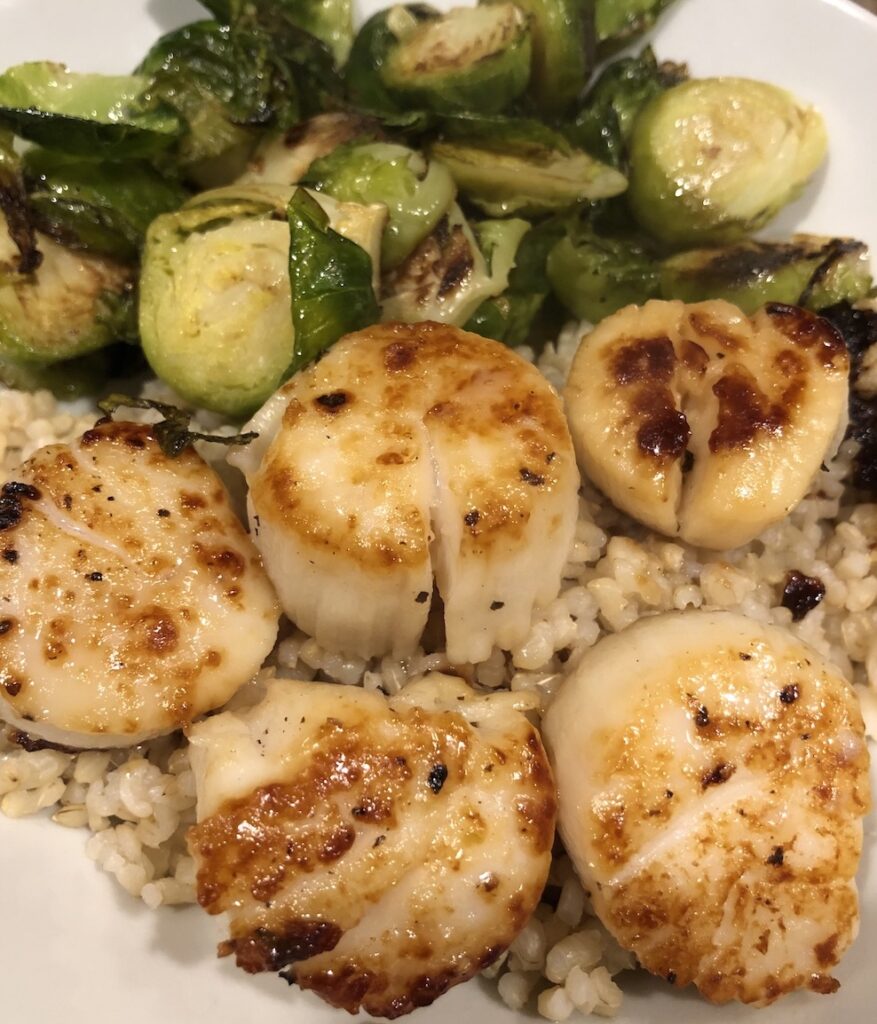
Carb sources that are also moderate in protein*
- Beans & lentils
- Oats
- Quinoa
- Corn
- Rice (wild, white, brown)
- Bread (white & whole wheat)
- Pasta (white & whole wheat)
- Bean pastas (chickpea, lentil)
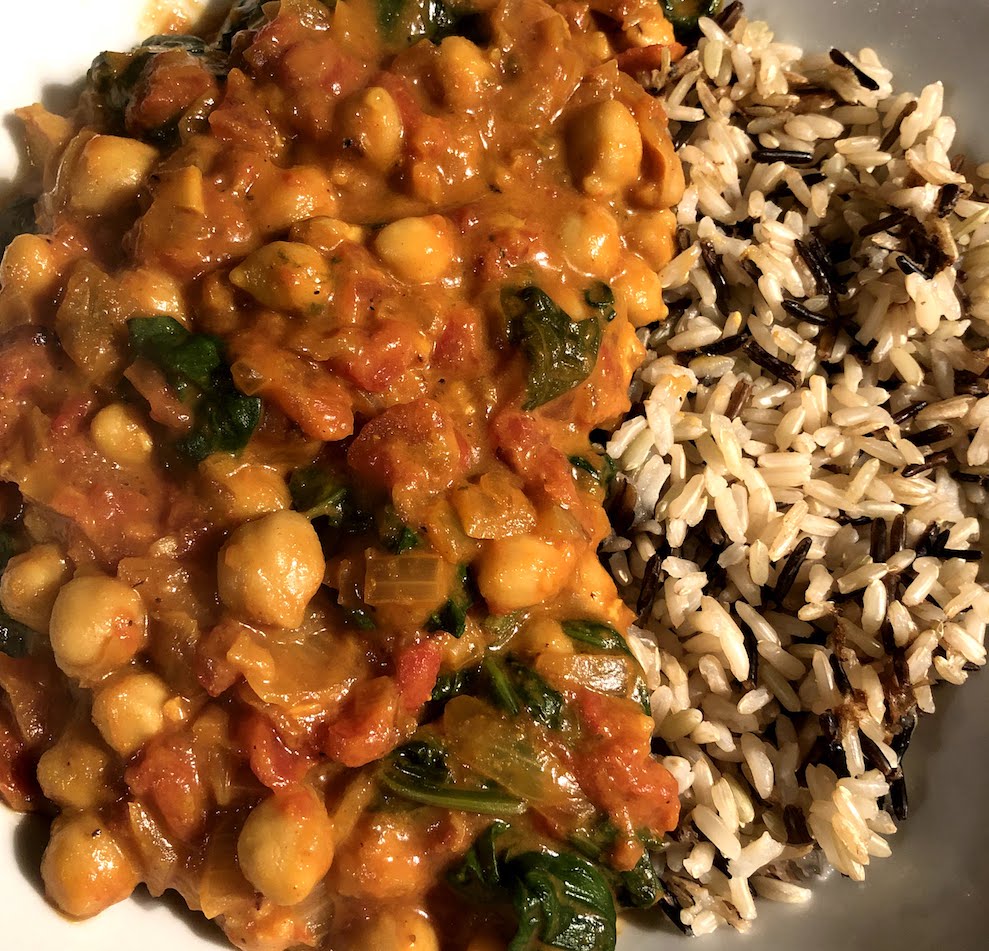
Fat sources that are also moderate in protein*
- Seeds (hemp, flax, chia, pumpkin, sunflower)
- Nuts & nut butters (almond, cashew, pistachio)
- Peanuts & peanut butter
- Cheese (parmesan, mozzarella, other hard cheeses)
- Milk, soy milk, & other plant milks (depending on brand)
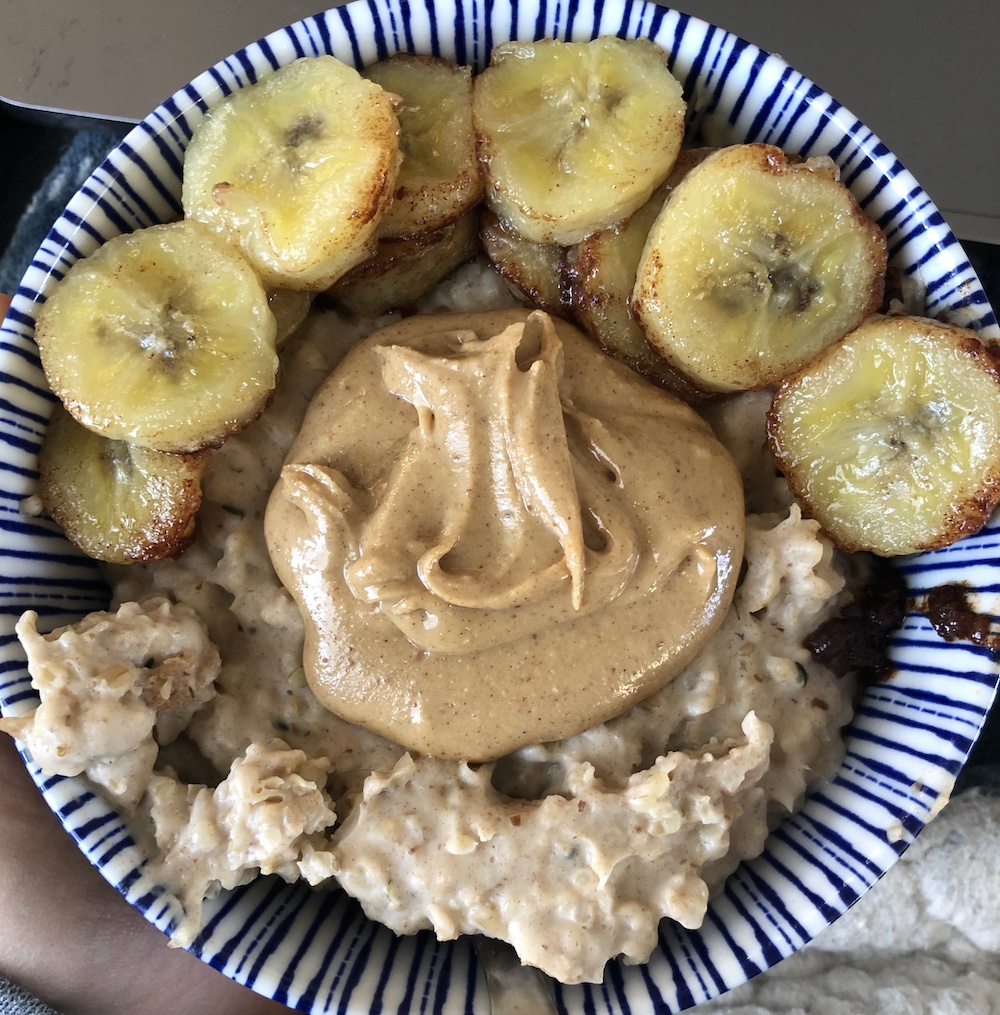
Vegetables that are also moderate in protein*
- Brussels sprouts
- Broccoli
- Cauliflower
- Asparagus
- Green peas
- Mushrooms
- Spinach
- Kale
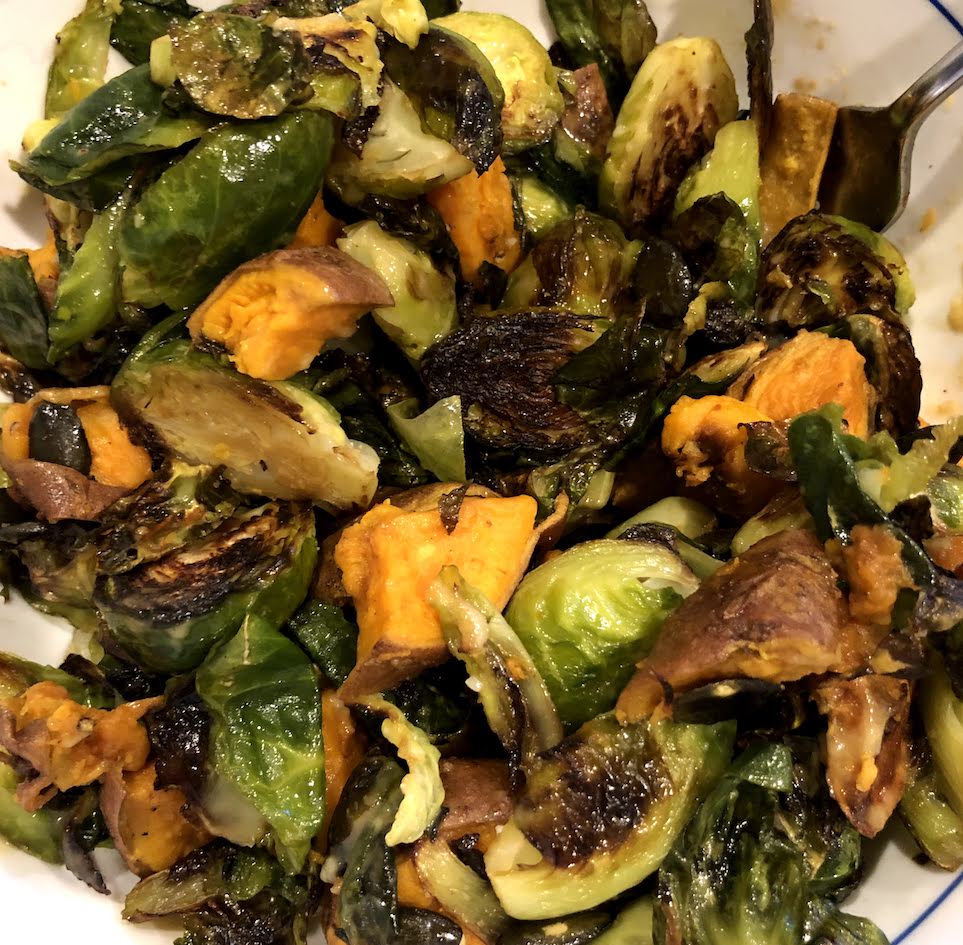
*Now, these carbs/fats/veggies aren’t going to add a whopping amount. They’re certainly not HIGH in protein, per their calories.
However, it all adds up, and the little bits here and there might get you to that 0.7g/1lb goal.
Plus, it’s excellent info for plant-based eaters!
A few other tips:
1. Perform an “audit” on your protein intake.
You don’t have to count calories, but take some time to Google how much protein is in all of your food (not just the meat and eggs) for one week.
You’ll learn a bit about how much protein is in certain foods, and once you have the knowledge, you won’t have to do it forever.
Plus, you might find you’re already getting a lot more than you think!
2. If you want to greatly increase protein without greatly increasing calories, focus on the first list (“foods very high in protein.”)
These foods have more protein per total calories.
For example, 100 calories of chicken breast adds ~18g of protein, but 100 calories of peanut butter only adds ~4g.
3. A simple way to increase protein is to increase the portions you’re already having, especially from lean sources.
For example, have 5oz of chicken instead of 4oz.
Or ¾ cup of Greek yogurt instead of ½ cup.
Or add egg whites to your eggs.
4. Consider having a protein shake daily.
Most of your protein – I’d say at least 80% – should come from whole foods.
Larger quantities of protein powder, while safe, could lead to nutrient deficiencies (because it’s replacing whole foods) and potential GI issues.
However, protein powder is a fantastic supplement for many people including athletes, plant-based eaters, and anyone struggling to get enough protein.
A huge benefit is that one scoop of protein powder typically provides 20-25 grams of protein! That’s a solid chunk right there, and it’s a lower-calorie option if that’s a concern for you.
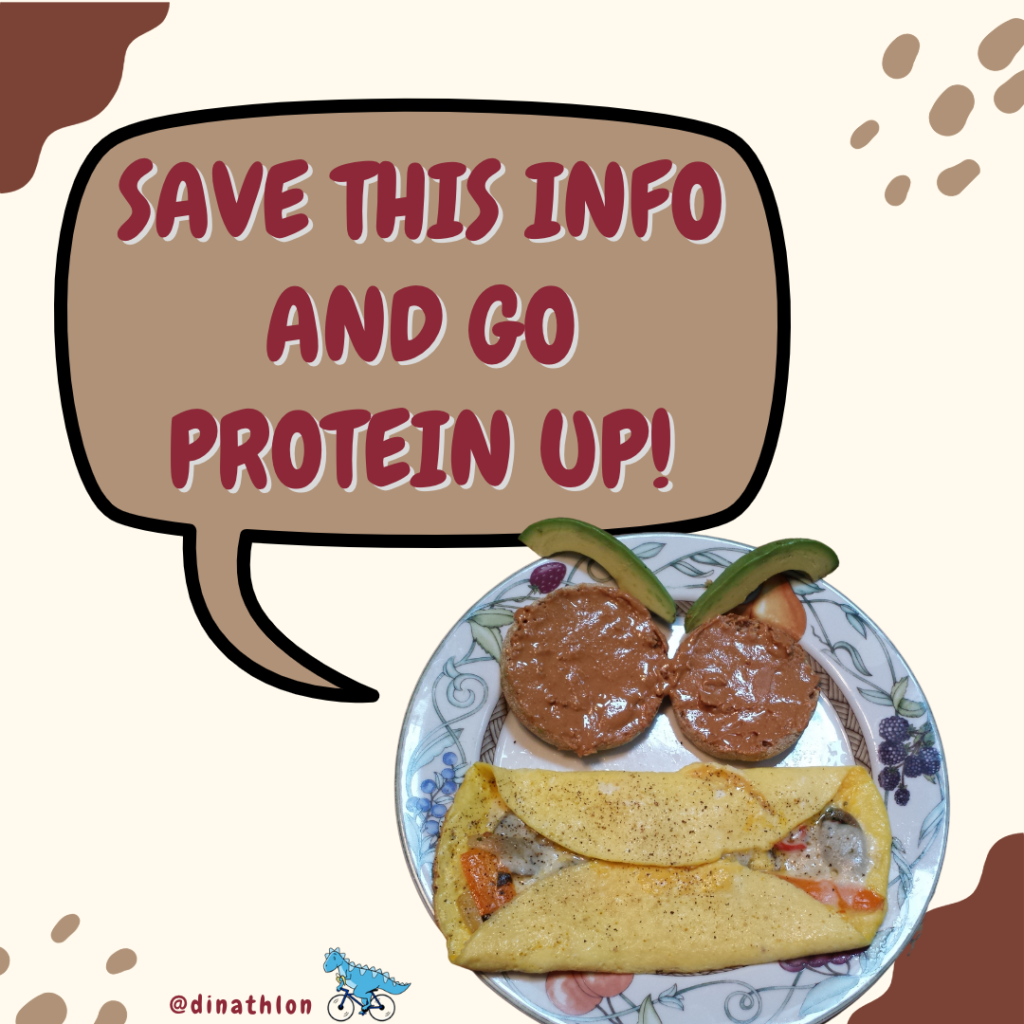
Hopefully this clears up any mysteries surrounding protein!
If you’d like to have a summary of this information, I’ve put together a PDF with key points from this article, including graphics with the various protein sources (shown below).
Still have questions about your protein intake, or protein in general? Send me an email and I’d be happy to help you figure it out!
Happy protein-ing!
-Dina
Dina Grimaldi is a triathlon & nutrition coach who helps athletes reach their goals while finding the balance they need to fit training comfortably into their lives, and who guides and supports those with nutrition or health goals to cultivate a lifestyle of sustainable habits and a healthy relationship with food.


Pingback: How to Stay Full in a Calorie Deficit - Dinathlon Multisport & Nutrition